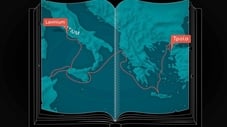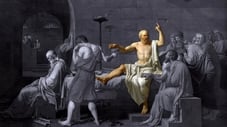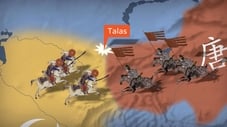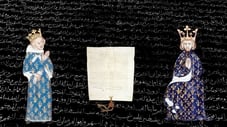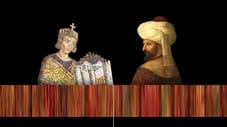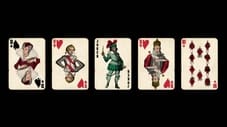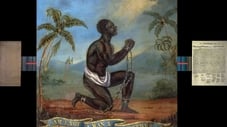Volume 2 (Collection DVD (Arte Éditions))
10 Episodes
April 21, 753 BC: The Roman world was certain of its foundation date for more than 1000 years. The mythical tale, Ab Urbe Condita, formalized by Titus Livius, was based on the struggle of its founding twins: sons to a god, Mars, and a virgin, Rhea Silvia. Archaeological research and historical critics are now convinced of two things: the city is older and the myth is more recent.
Read MoreWhy was Socrates condemned by the city of Athens? Was the figure of the master thinker, who could subvert the youth, really a danger to a Greek democracy that was more idealized than it was understood?
Read MoreIn the middle of the 8th century, the chancellery of the bishops of Rome was on the verge of becoming a spiritual heir to the Western emperors. That was when it committed the most important forgery in the history of the West.
Read MoreIn the middle of the 8th century AD, in the heart of Central Asia, on the borders of present-day Kazakhstan and Kyrgyzstan, a battle without victors was fought.
Read MoreOn 25 August 1270 Louis IX died on the hill above Carthage. He was the only king in the history of France to die outside of national borders; even worse, on non-Christian soil. This day was a milestone in the career of a saint in the making. Even though the canonization of Saint Louis did not take place until 27 years later, in 1297.
Read MoreThe fall of Constantinople marked the end of the Byzantine Empire – a power descending from none other than ancient Rome. Its symbolism has long since transcended its actual significance.
Read MoreThe assassination of Henri IV, peacemaking and reformist king, is as much a canonical scene in the History of France as it is a decisive break in political modernity. And first of all because it is a newsworthy event with an almost global dimension. We know that its spread to the “four corners of the world” is an indication of an open, if not connected, world.
Read MoreThe American revolution is sometimes watered down to the point where it can become an almost silent revolution.
Read MoreThe expression “Spring of Nations” inspired the more recent “Arab Spring” of 2011. Also known as the Springtime of the Peoples, the period was characterized by a cascade of national claims. However, these movements had difficulties in coordinating, for the simple reason that these movements first of all stemmed from a desire to draw definite borders, rather than to open them.
Read MoreThe capture and looting of Emperor Qing Xianfeng's two summer palaces in Beijing (Peking) was the culmination of the Second Opium War; pitting the colonial powers of France and the United Kingdom against China. Yet it was also a double-edged sword.
Read More
